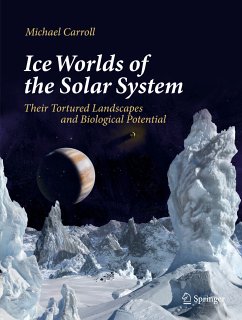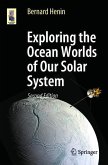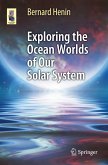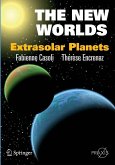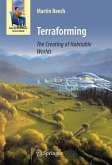Although there is a chance that certain planets may be habitable for life, the moons of planets might have even more to offer. The ice moons of Jupiter, Saturn, Uranus and Neptune have taught us important lessons about new volcanic forms-cryovolcanism-and the bizarre landscapes sculpted by those erupting geysers. Glaciers, ice mountains, and vast canyons mold the faces of these worlds of ice and thunder. Yet, many ice moons and dwarf planets, including Ceres and Pluto, are in fact sea worlds, hiding deep oceans beneath their ice crusts.
This book explores the frozen worlds beyond Mars, delving into the interior forces of migrating ice diapirs, seafloor volcanism and tidal friction, which help form the landscapes found above and biologically friendly environs buried below. It covers the latest research in the field and includes interviews with today's foremost authorities, including astrobiologists Chris McKay (NASA Ames), Ralph Lorenz (Johns Hopkins Applied Physics Laboratory) and Karl Mitchell (Jet Propulsion Laboratory). Original art by the author enhances the concepts explored in the text, recreating some of the most remarkable landscapes on icy planets and moons.
Dieser Download kann aus rechtlichen Gründen nur mit Rechnungsadresse in A, B, BG, CY, CZ, D, DK, EW, E, FIN, F, GR, HR, H, IRL, I, LT, L, LR, M, NL, PL, P, R, S, SLO, SK ausgeliefert werden.

